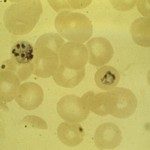Link to Pubmed [PMID] – 32745736
Link to HAL – pasteur-03757304
Link to DOI – 10.1016/j.coi.2020.06.005
Current Opinion in Immunology, 2020, Special Section on Indoles as immune regulators, 65, pp.83-88. ⟨10.1016/j.coi.2020.06.005⟩
The goal of translational medicine is to use an improved understanding of human biology to develop new clinical approaches. Immune responses are highly variable from one person to another, with this variability strongly impacting clinical outcome. Variable immunity can determine differential risks for infection, for development of autoimmunity, and for response to therapeutic interventions. Therefore, a better understanding of the causes of such differences has huge potential to improve patient management through precision medicine strategies. Variability in immunity is determined by intrinsic (e.g. age, sex), extrinsic (e.g. environment, diet), and genetic factors. There is a growing consensus that genetics factors account for 20-40% of immune variability between individuals. The remaining unexplained variability is likely due to direct environmental influences, as well as specific gene-environmental interactions, which are more challenging to quantify and study. However, population based cohort studies with systems immunology approaches are now providing new understanding into these associations.



